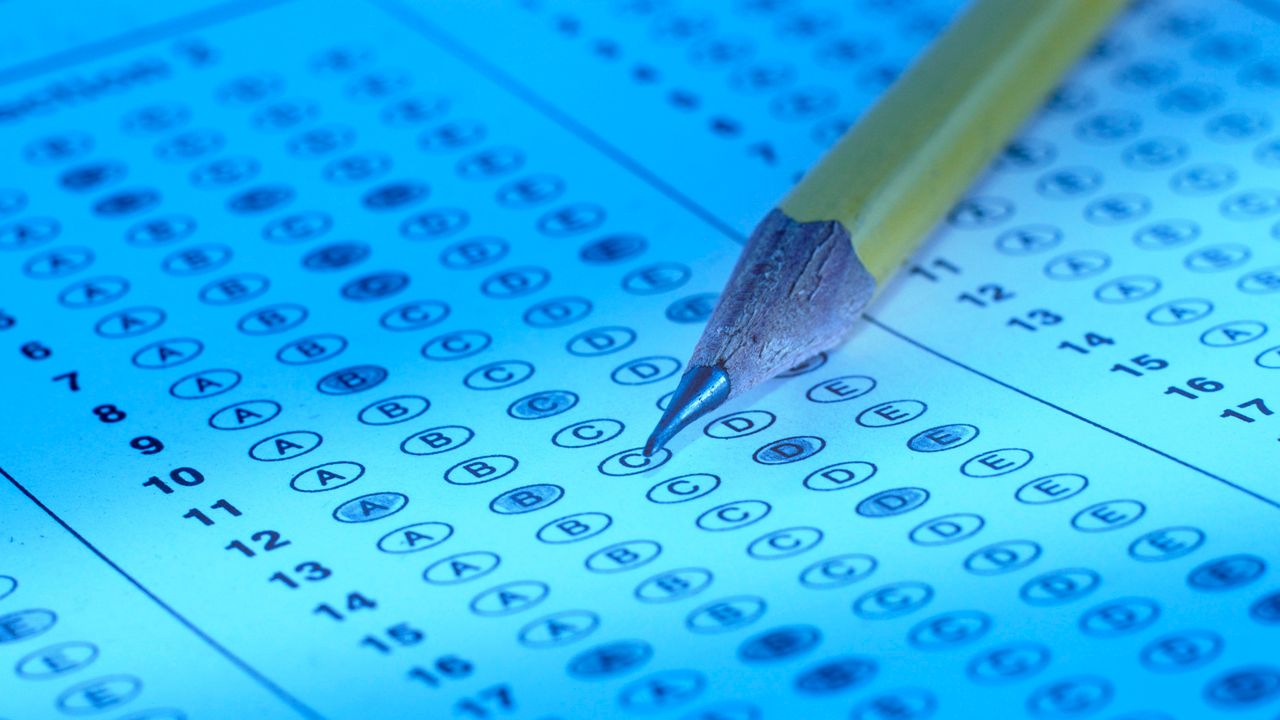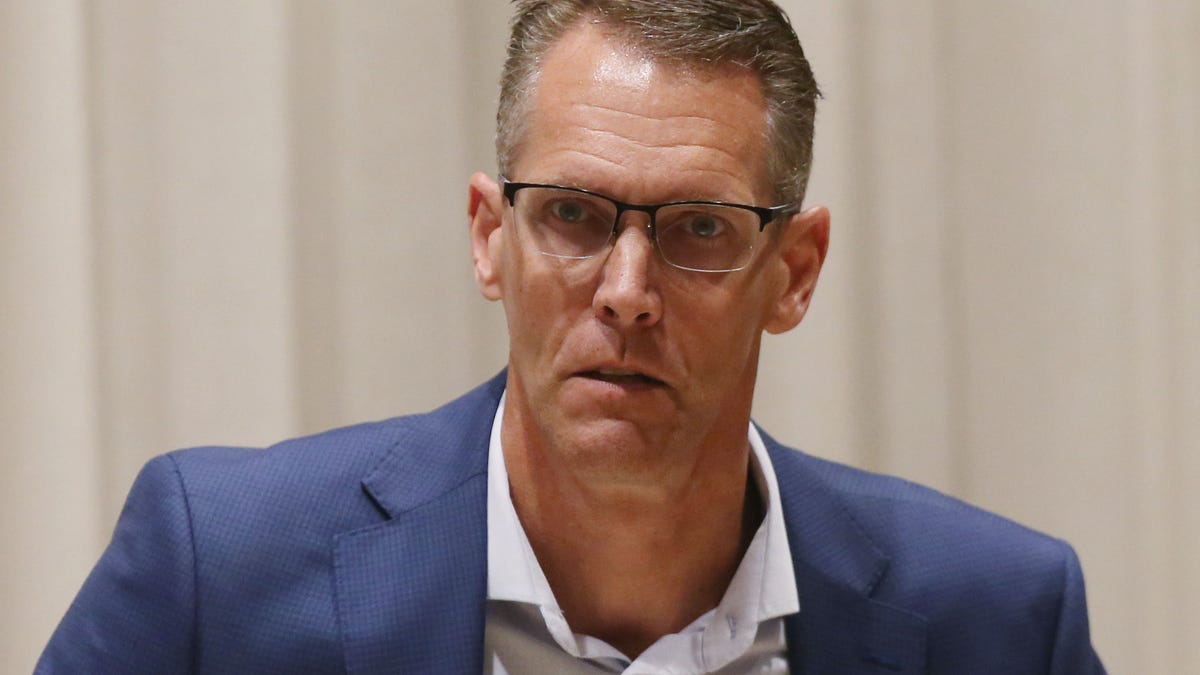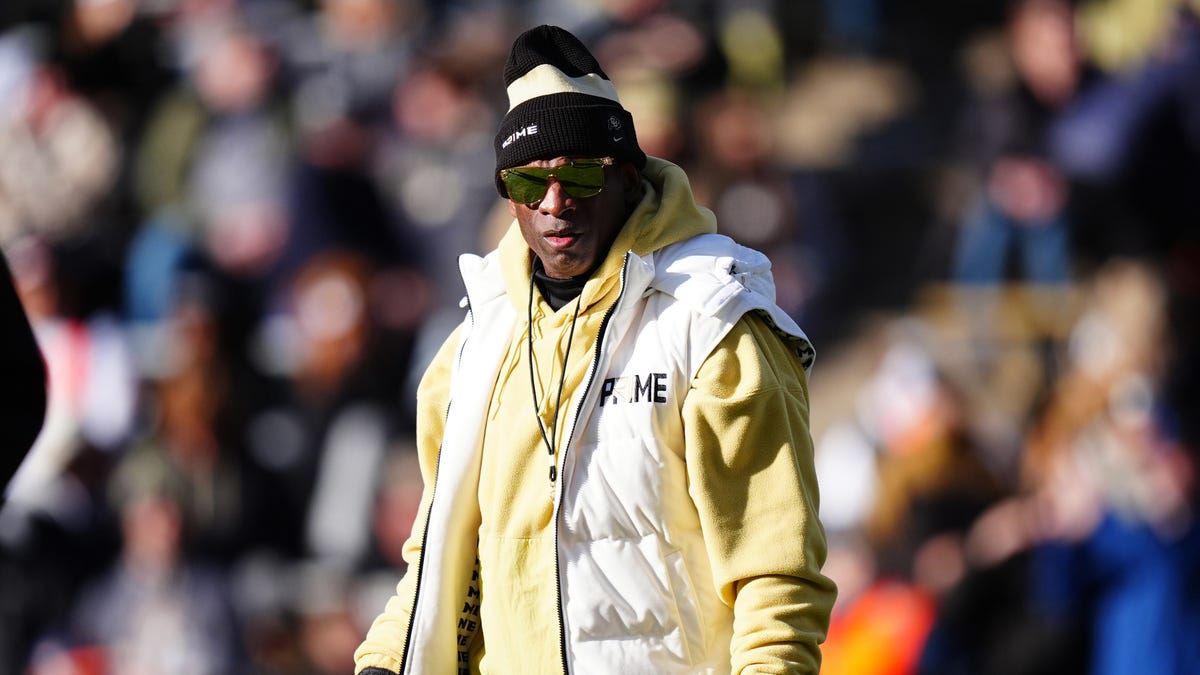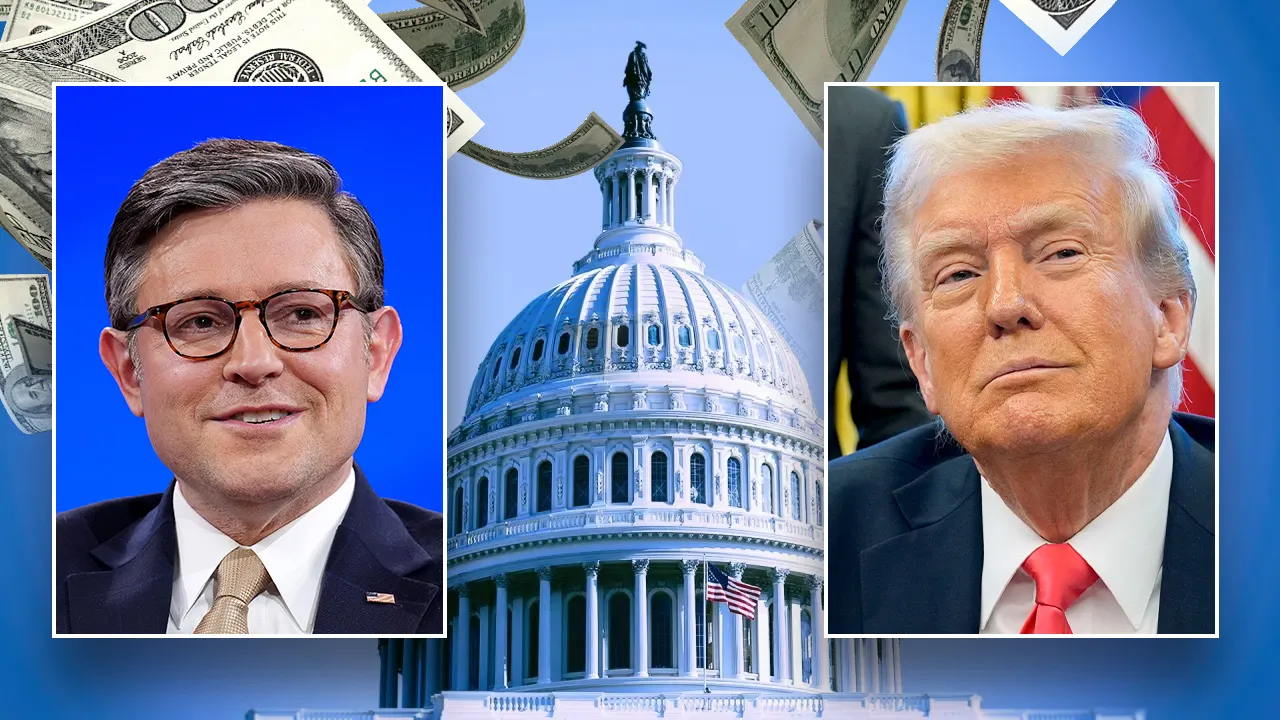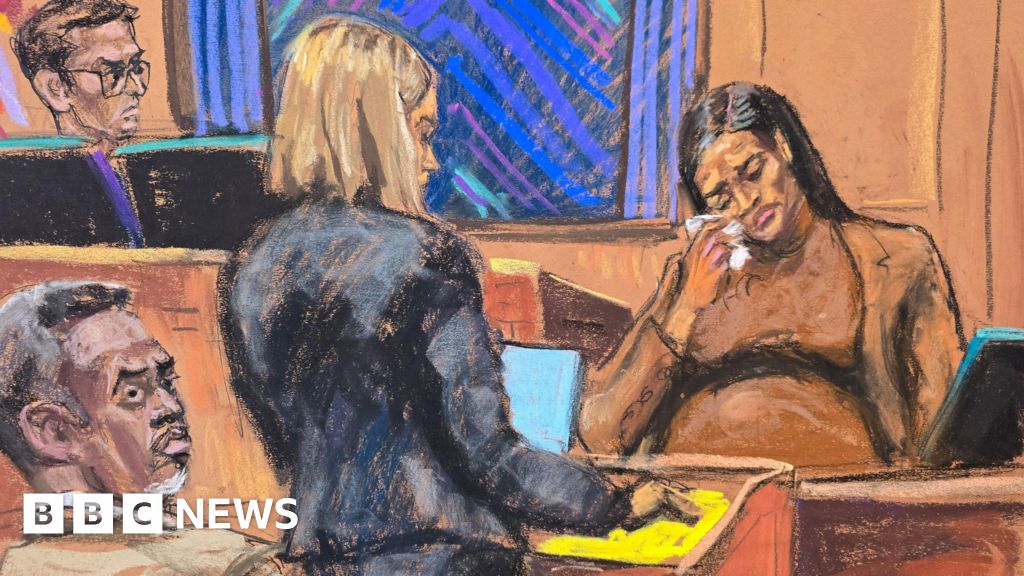World
Senate votes to block 2nd DC crime law; Biden veto expected

WASHINGTON (AP) — The Senate has voted to overturn a District of Columbia law enacted last year to improve police accountability, the second time this year that Democrats have joined with Republicans to try and block the district’s crime regulations.
President Joe Biden is expected to veto the resolution, which the House passed last month. The White House said in a statement of policy that the president doesn’t support every provision of the D.C. law, which was passed in the wake of the police killing of George Floyd in 2020. But Biden supports “commonsense police reforms” that are part of it, such as banning chokeholds, limiting use of deadly force, improving access to body cameras and requiring increased de-escalation training.
“Congress should respect the District of Columbia’s right to pass measures that improve public safety and public trust,” the White House said.
Still, eight Senate Democrats supported the GOP-led effort to overturn the law, as members of both parties have expressed concern about rising violent crime rates in cities nationwide. In D.C., homicides in the city had risen for four years straight before they dropped around 10% in 2022. The 2021 murder count of 227 was the highest since 2003.
“Congress must exert our constitutional authority to keep our nation’s capital safe,” said freshman Sen. J.D. Vance, R-Ohio, who sponsored the Senate effort.
In March, the Senate approved a separate GOP-led House bill to overturn changes in D.C.’s criminal code. Biden signed that resolution, ultimately blocking the D.C. law that would have redefined some crimes, changed criminal justice policies and reworked how sentences should be handed down after convictions. The scrapped criminal code also would have done away with mandatory minimum sentences for many crimes and would have reduced the maximum penalties for burglary, carjacking and robbery.
Biden’s signature two months ago marked the first time in more than three decades that Congress has nullified the capital city’s laws through the disapproval process — and reflected a shift in the long-held Democratic position that the federal government should let D.C. govern itself.
On Tuesday, six Democrats voted for the Republican resolution to overturn the police accountability laws: West Virginia Sen. Joe Manchin, Montana Sen. Jon Tester, New Hampshire Sens. Jeanne Shaheen and Maggie Hassan and Nevada Sens. Catherine Cortez Masto and Jacky Rosen. Independent Sens. Kyrsten Sinema of Arizona and Angus King of Maine also supported the resolution.
District lawmakers said that even if Biden were to sign the resolution – which he has said he won’t — it wouldn’t be valid. D.C. Attorney General Brian Schwalb issued an opinion that the time period for Congress to act had expired, meaning that the law has been enacted and cannot be overturned. Vance disagreed, arguing that there was Senate precedent for enactment after the deadline.
District of Columbia Del. Eleanor Holmes Norton said after the vote that she was disappointed but pleased it would not ultimately overturn D.C. law.
Washington’s criminal code hasn’t been updated substantially since it was first drafted in 1901, and criminal justice experts say that Black people have been disproportionately affected by the criminal laws, similar to many other cities.
Ahead of the House vote in April, Norton called the resolution “ profoundly undemocratic” and “paternalistic.”
“I can only conclude that the Republican leadership believes that D.C. residents, a majority of whom are Black and Brown, are unworthy of governing themselves,” Norton said.

World
Top US Senate Democrat to block Trump DOJ nominees over Qatar airplane

World
Self-proclaimed 'king of Germany' arrested in plot to overthrow government

The self-styled “king” of Germany and three of his senior “subjects” were arrested for attempting to overthrow the state, according to media reports.
Peter Fitzek, 59, was taken into police custody during morning raids conducted Tuesday in seven German states, the BBC reported.
Fitzek’s group, the Reichsbürger, or “citizens of the Reich,” has also been banned by the government.
TRUMP CELEBRATES CONSERVATIVE PARTY WIN IN GERMANY
Peter Fitzek, the self-proclaimed head of the so-called “Kingdom of Germany,” poses for a photo with the kingdom’s constitution in Wittenberg, Germany, Oct. 23, 2023. (Jens Schlueter/AFP via Getty Images)
The group’s aim is to establish the Königreich Deutschland, or “Kingdom of Germany.”
“I have no interest in being part of this fascist and satanic system,” Fitzek previously told the news outlet in a 2022 interview.
Reichsbürgers reportedly have their own currency, flag and identification cards and want to set up separate banking and health systems.
The Reichsbürger undermined “the rule of law,” said Alexander Dobrindt, Germany’s interior minister, by creating an alternative state and spreading “antisemitic conspiracy narratives to back up their supposed claim to authority,” the news report states.
GERMANY’S NEW LEADER LOOKS TO DISTANCE EUROPE FROM TRUMP
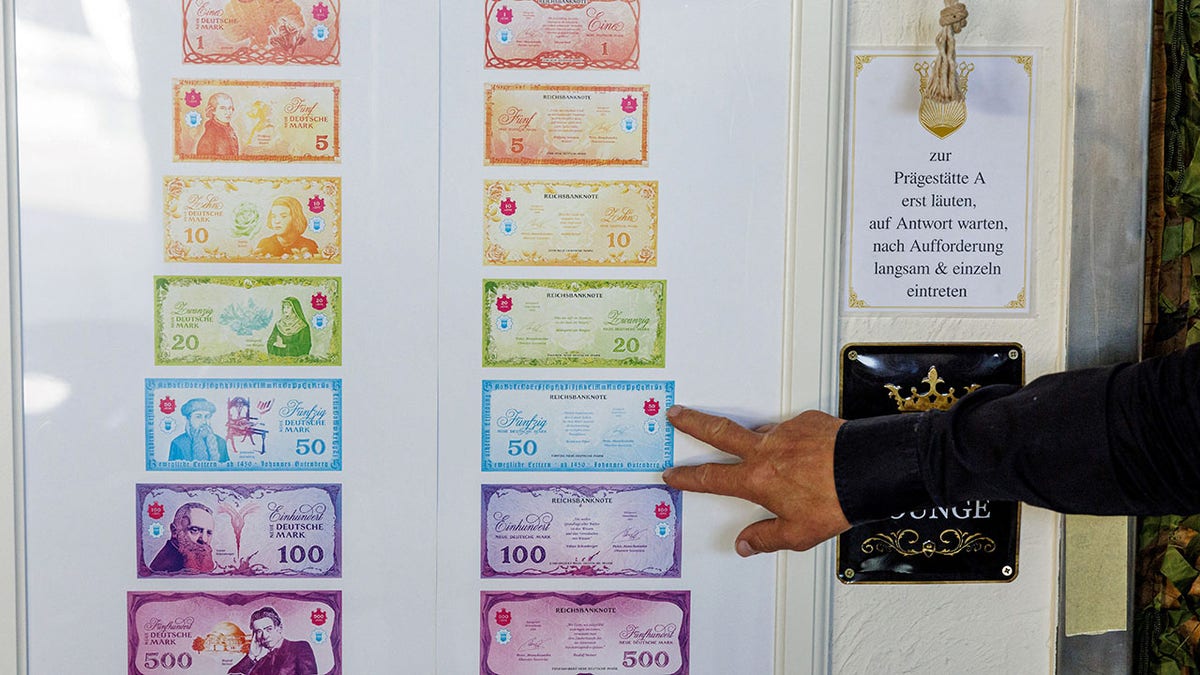
Peter Fitzek, the self-proclaimed head of the so-called “Kingdom of Germany,” shows the paper currency he created himself in Wittenberg, Germany, Oct. 23, 2023. (Jens Schlueter/AFP)
He said the group finances itself through crime.
Fitzek, who claims to have thousands of “subjects,” denied having violent intentions but also called Germany “destructive and sick.”
In 2022, dozens of people associated with the Reichsbürger were arrested for plotting to overthrow the German government in Berlin. They were accused of planning a violent coup, which included kidnapping the health minister in an effort to create “civil war conditions” to bring down German democracy, according to the BBC.
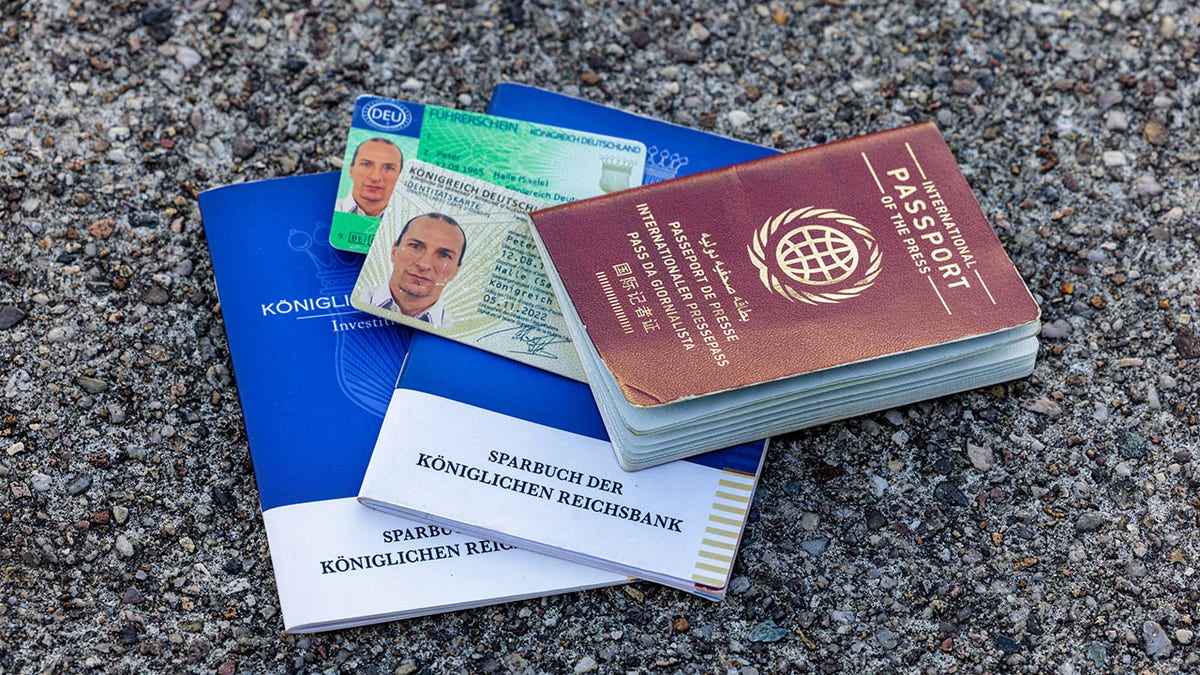
Self-made identity and banking documents of the so-called “Kingdom of Germany” are pictured in Wittenberg, Germany, Oct. 23, 2023. (Jens Schlueter/AFP via Getty Images)
Once dismissed as eccentric by critics, the group is now seen within Germany as a serious threat as the far right has grown politically over the past decade, the report said.
World
Costa calls for reforms in Bosnia to ensure EU membership progress
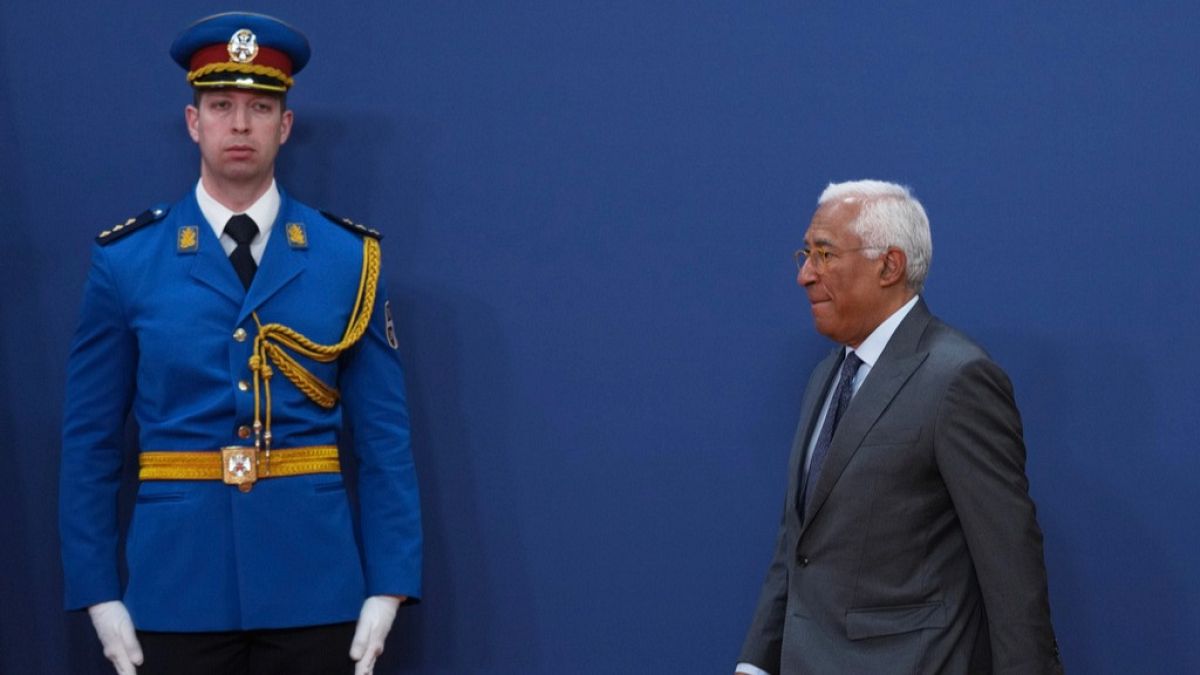
After his trip to Belgrade, European Council President António Costa visited Sarajevo on Tuesday as part of his Balkans tour. He was given a warm reception upon his arrival before meeting with Bosnia’s presidency.
In a statement, the European Council chief announced that the EU “remains committed” to the country’s European future. He also praised Željka Cvijanović, Denis Bećirović, and Željko Komšić — members of the Western Balkan country’s three-way presidency — for their role in maintaining stability and security in the country and the region.
Recently, tensions have been brewing domestically over the leader of the entity of the Republika Srpska (RS), Milorad Dodik’s actions, which the state-level authorities denounced for undermining the country’s constitutional order.
Western powers and the EU have condemned Dodik for his provocations after he had suggested that the Dayton Agreement, the peace agreement that formally ended the Bosnian War in 1995, had outlived its purpose.
In his statement, Costa underlined the importance of the Dayton accords, set to mark its 30th anniversary this year.
“And this year, on the 30th anniversary of Srebrenica genocide and the Dayton (and) Paris Agreement, I believe that it is an important message to remember,” said Costa.
Costa also outlined that some reforms are needed to ensure Bosnia remains on the path to EU membership.
“We need the approval of two judiciary laws, the appointment of a chief negotiator, and the adoption of the reform agenda to move towards on the Bosnia and Herzegovina in the European path.”
Bosnia is the only country that does not benefit from the EU’s Growth Plan for the Western Balkans. Costa stressed that implementing these reforms is of paramount importance to ensure that Bosnia’s citizens benefit from the EU plan.
“I would like to see Bosnia and Herzegovina joining the other Western Balkans partners in profiting from all that the European Union has to offer,” the Council president noted.
Costa will next travel to Montenegro and Albania on Wednesday, for meetings with President Jakub Milatović in Podgorica and President Bajram Begaj in Tirana. He’ll conclude his tour with a visit to Skopje in North Macedonia, where he will meet Prime Minister Hristijan Mickoski.
Additional sources • AP
-

 Austin, TX3 days ago
Austin, TX3 days agoBest Austin Salads – 15 Food Places For Good Greens!
-

 Education1 week ago
Education1 week agoIn Alabama Commencement Speech, Trump Mixes In the Political
-

 Technology1 week ago
Technology1 week agoBe careful what you read about an Elden Ring movie
-

 Culture1 week ago
Culture1 week agoPulitzer Prizes 2025: A Guide to the Winning Books and Finalists
-
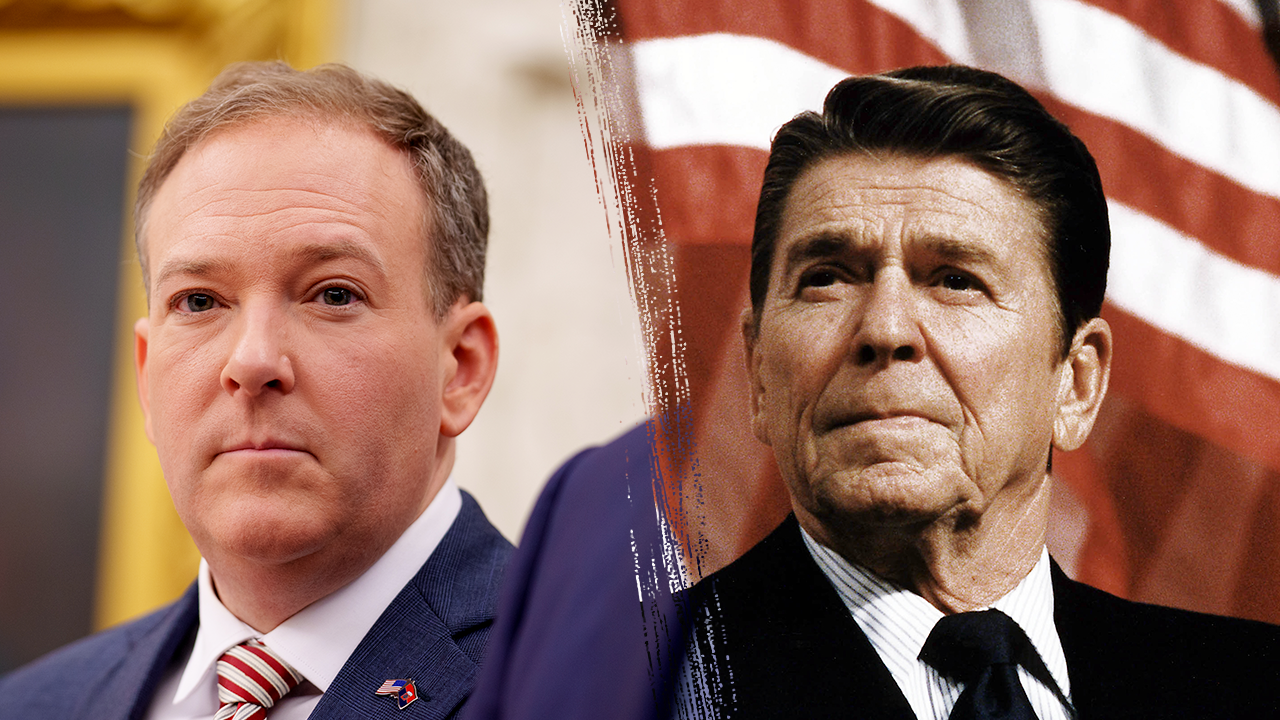
 Politics1 week ago
Politics1 week agoEPA chief Zeldin announces overhauls to bring agency back to Reagan-level staffing
-

 Education1 week ago
Education1 week agoUniversity of Michigan President, Santa Ono, Set to Lead University of Florida
-

 World5 days ago
World5 days agoThe Take: Can India and Pakistan avoid a fourth war over Kashmir?
-

 Technology5 days ago
Technology5 days agoNetflix is removing Black Mirror: Bandersnatch

